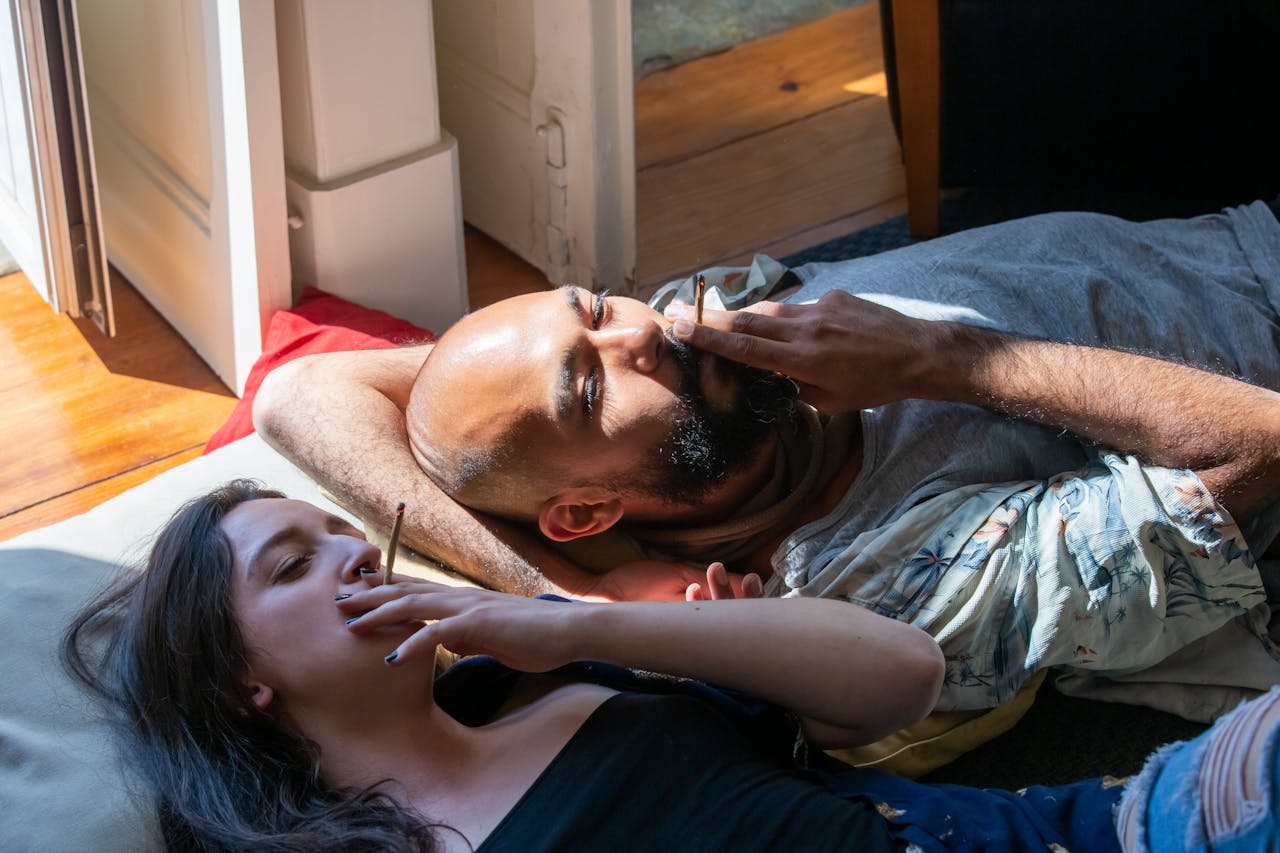How Families Can Begin Healing with Addicted Parents

Families often carry invisible wounds when addiction enters the home. Healing begins with understanding that no one is alone in this process. At Sun Valley Rehab, our team has seen countless families rebuild connection, forgiveness, and trust when they learn that recovery is possible for everyone involved. The path may feel uncertain, but growth and healing come when compassion replaces blame and openness replaces fear. In homes affected by addicted parents, the goal isn’t perfection—it’s progress. Every small effort toward understanding, communication, and structure can rebuild the family’s foundation and make recovery feel achievable for all.
How Does Addiction Affect Every Member of the Family?
Addiction touches everyone it comes near, shaping how people think, feel, and react to one another. Families often experience emotional instability, financial stress, and confusion as they try to balance love with boundaries. Programs that focus on family therapy in addiction help relatives recognize that substance use isn’t just about poor choices—it’s a medical and psychological condition that alters brain chemistry and behavior. When parents addicted to drugs lose control, their actions ripple through every corner of the household.

Children may withdraw or take on adult responsibilities too soon, while spouses may develop anxiety or codependent habits. Healing begins when everyone acknowledges that addiction is a shared challenge, not a moral failing. Families who learn the science behind substance use can replace judgment with empathy, making space for hope and honest recovery. Education turns fear into understanding, which is the foundation of lasting change.
Recognizing Addiction as a Family Disease
Addiction reshapes how families function and interact. Recovery begins when everyone acknowledges that it’s a shared challenge, not an individual flaw. These facts show why awareness and education matter.
- Addiction affects every family member emotionally, mentally, and financially.
- Children may develop anxiety, guilt, or a need to “fix” things early in life.
- Spouses or partners often face burnout and emotional instability.
- Education helps replace shame with empathy, laying the foundation for collective healing.
- Recognizing addiction as a medical condition allows families to focus on treatment instead of blame.
How Can Families Break the Silence and Rebuild Communication?
Silence often protects pain, but it also traps it. Many families find it difficult to talk about substance use or relapse because shame clouds every conversation. Guided discussions with specialists during programs, such as inpatient detox San Fernando Valley, can open doors that have been closed for years. Once everyone begins to talk, healing starts to flow naturally. For families with addicted parents, communication becomes the bridge between fear and recovery.
Therapists encourage open dialogue where emotions can surface safely, helping both parents and children voice anger, sadness, or confusion without judgment. Learning to talk about triggers and boundaries in a calm, respectful way helps restore trust over time. Families must replace blame with curiosity and set aside guilt to understand what each member needs to feel secure. When communication becomes consistent, the home begins to feel stable again, and everyone learns that honesty strengthens, not breaks, relationships.
Opening Safe Conversations
Families often fear confrontation or judgment when talking about addiction. Breaking the silence allows healing to start and relationships to rebuild. Here’s what makes communication work.
- Open dialogue reduces shame and creates emotional safety.
- Guided conversations led by therapists help family members express hurt safely.
- Honest communication rebuilds trust and transparency between loved ones.
- Discussing relapse triggers in calm environments strengthens prevention.
- Replacing silence with empathy creates a space where recovery can thrive.
What Role Does Family Therapy Play in Long-Term Recovery?
Professional guidance often turns chaos into clarity. Addiction can distort family roles—one member might try to “fix” the situation while another withdraws completely. Structured therapy helps families understand how these patterns form and how to break them. Many clients entering residential treatment Los Angeles find that therapy isn’t just about the individual—it’s about restoring unity. In these sessions, specialists use behavioral approaches to address denial, resentment, and fear. Family therapy also shows relatives how to support recovery without enabling harmful habits.

Parents often rediscover emotional balance when they see that healing together can be more powerful than isolating in guilt. Therapy becomes the safe space where families practice healthy communication and accountability. It’s where they learn that recovery is a team effort built on empathy, structure, and shared responsibility. When loved ones heal side by side, relapse rates drop, and trust gradually returns to the home.
Strengthening Family Bonds Through Therapy
Addiction often breaks family dynamics, but therapy helps restore balance and understanding. These insights show how professional support drives collective recovery.
- Therapy reveals hidden family patterns like blame, guilt, or denial.
- Family therapy reduces relapse risk by fostering accountability and empathy.
- Sessions help members support recovery without enabling harmful behavior.
- Learning emotional regulation restores trust and structure in the home.
- Therapy turns chaos into clarity, showing families they can heal together.
How Can Families Support Children of Addicted Parents?
Children often absorb the most confusion and pain when substance use enters the family. They sense instability but rarely understand its cause. Early counseling and education can help them name what they feel and learn that they aren’t to blame. Relapse prevention program California often include child-focused sessions that address emotional regulation, safety, and communication skills. In families with addicted parents, children need both reassurance and truth. Age-appropriate conversations that explain addiction as an illness, not a personal failure, help them process what’s happening without internalizing shame.
Parents in recovery must also rebuild consistency—regular routines, family meals, and predictable affection can restore a child’s sense of safety. Encouraging open questions like “How are you feeling?” shows kids that their emotions matter. Over time, children begin to trust again and understand that recovery doesn’t erase the past—it creates a healthier present. Family healing grows when children are given space to be heard, supported, and loved unconditionally.
Helping Children Feel Safe and Understood
Children need stability and reassurance to recover emotionally from addiction’s effects at home. These points highlight what families and professionals can do to protect their well-being.
- Children of addicted parents often feel responsible or guilty for the addiction.
- Honest, age-level explanations help children understand addiction as an illness.
- Predictable routines and affection restore trust and consistency.
- Early therapy reduces trauma and prevents emotional withdrawal.
- Validation and open dialogue empower children to heal and rebuild security.
Why Are Boundaries So Important During Recovery?
Boundaries protect relationships by defining where support ends and self-care begins. Families rebuilding after addiction must learn to separate healthy involvement from emotional overextension. This process is especially critical for parents addicted to drugs who are trying to regain trust. In many cases, clients completing group therapy for addiction treatment find that setting boundaries helps prevent relapse and strengthens accountability. Without boundaries, families often fall into old patterns of control, blame, or secrecy. Clear agreements—like attending therapy, staying sober, or respecting personal space—build mutual respect.

When everyone knows what’s acceptable and what’s not, emotional safety increases. For recovering parents, this structure creates confidence and stability. It reassures children and partners that promises have meaning again. Healthy boundaries aren’t punishments—they’re protection for everyone’s peace of mind. Over time, these limits transform chaos into consistency, allowing love to flourish without fear or pressure.
Building a Healthy Family Structure
Boundaries give recovery stability. They prevent old habits and allow both the parent and the family to rebuild relationships with respect and safety.
- Boundaries protect both recovering parents and loved ones from emotional burnout.
- Clear agreements—like attending therapy or maintaining sobriety—strengthen accountability.
- Consistent structure rebuilds trust and reduces chaos at home.
- Healthy boundaries separate care from control, allowing independence in recovery.
- Setting limits helps families grow together with honesty and confidence.
How Does Community Help Families Maintain Recovery?
No family heals in isolation. Addiction recovery thrives on connection, encouragement, and shared experience. Community involvement reinforces the lessons learned in treatment and reminds everyone that setbacks can be managed. Programs like suboxone treatment Los Angeles often provide aftercare and alumni groups where families can continue to grow together. These groups become safe spaces to share struggles, celebrate milestones, and exchange advice with others who understand. For addicted parents, having peers who empathize with their daily challenges reduces shame and builds motivation.
Children and spouses also benefit from community events and support groups like Al-Anon or Nar-Anon, where they can learn coping strategies and communication skills. Consistent involvement prevents isolation—the biggest risk to relapse and emotional burnout. Healing becomes a collective effort where families lift one another up. The more connected they stay, the more resilient their recovery becomes, turning community into a vital form of ongoing treatment.
Staying Connected After Treatment
Recovery doesn’t end when formal treatment does. Community involvement keeps families motivated and supported long after rehab.
- Isolation increases relapse risk for both parents and family members.
- Support groups like Al-Anon, Nar-Anon, and alumni meetings provide peer connection.
- Shared experiences remind families that healing is a collective effort.
- Community involvement strengthens long-term commitment to recovery.
- Consistent participation keeps families accountable and emotionally grounded.
How Can Families Rebuild Hope and Connection After Recovery?
Healing doesn’t end with sobriety—it deepens through connection. Families that rebuild trust and create new shared experiences discover that recovery can bring them closer than before. Activities like shared meals, outdoor walks, or creative hobbies reintroduce joy and normalcy. Many clients continuing care after meth rehab Los Angeles find that rebuilding relationships becomes the heart of long-term stability. In homes recovering from addicted parents, small daily gestures—like active listening, affection, or showing gratitude—create emotional renewal.

Parents who once struggled with substance use can now model accountability and resilience, proving that recovery strengthens love, not weakens it. Families who stay engaged in therapy, attend check-ins, or volunteer together keep the healing momentum alive. Hope grows stronger with every honest conversation and every shared moment of progress. The key is consistency: showing up, forgiving often, and choosing empathy even when it’s hard. When families prioritize connection, recovery becomes not just possible but sustainable.
Restoring Trust and Daily Joy
Healing is ongoing, and connection is its anchor. Families rebuild through consistency, empathy, and new shared experiences that replace old wounds with stability and love.
- Recovery deepens through daily connection, not just abstinence.
- Small gestures like gratitude or active listening strengthen family bonds.
- Parents can model resilience and accountability for their children.
- Continued therapy and community engagement reinforce progress.
- Rebuilding connection ensures long-term stability and emotional wellness.
Finding Strength and Healing as a Family with Addicted Parents
Healing from addiction requires courage from every family member, not just the one in treatment. Families affected by addicted parents learn that recovery unfolds step by step—through education, communication, structure, and unconditional love. The process transforms pain into understanding and guilt into growth. If your family is ready to rebuild connection and stability, reach out to Sun Valley Rehab today. Our compassionate team provides comprehensive support for parents of addicts, evidence-based care, and ongoing help for parents of addicts seeking long-term recovery. Let our specialists offer guidance, structure, and words of encouragement for parents of drug addicts ready to restore trust, health, and hope. Contact us now to begin healing as a family.
You Have Questions
We Have Answers
At Tranquility Recovery Center, we offer treatment for a wide range of addictions, including alcohol, opioids, prescription drugs, and illicit substances. Our team tailors each program to meet individual needs, focusing on both the physical and emotional aspects of recovery.
At Tranquility Recovery Center, we offer treatment for a wide range of addictions, including alcohol, opioids, prescription drugs, and illicit substances. Our team tailors each program to meet individual needs, focusing on both the physical and emotional aspects of recovery.
At Tranquility Recovery Center, we offer treatment for a wide range of addictions, including alcohol, opioids, prescription drugs, and illicit substances. Our team tailors each program to meet individual needs, focusing on both the physical and emotional aspects of recovery.